Products
Imperial Coco
COCONUT SUGAR
Coconut sugar is made from a tree called Cocos nucifera, which naturally grows in tropical countries like Indonesia, Thailand and Philippines. Our country, Indonesia, is the biggest coconut producer in the world. Coconut sugar is often called by different names in some countries such as brown sugar, arenga sugar, and palm sugar, where there is confusion whether it is the same thing. Well, it is not. Most brown sugar is a mixture of white sugar and molasses, which is a type of sugar-derived syrup. Molasses is responsible for its darker color and slightly increases its nutritional value. Arenga and palm sugar are the same thing, which we will explain in another section below.
The process of making coconut sugar begins with neera (nira in Bahasa), the nectar sap of coconut tree’s flower-bud stem that is harvested two times a day by our farmers. A cut is made on the flower-bud stem and the liquid sap is collected. What may surprise you is that, they use a very long bamboo pole that has been perforated with small holes that enough only for their big toe, not the whole foot, to climb up the tree. They do this while carrying two large pongkor, a handmade container from big bamboo to collect the neera, and a special sapper. Imagine their strength and skill.
Once harvested, the neera is transferred into a huge wok and boiled until it is thicken and change color from translucent to dark brown. This process to lower the moisture content continues for several hours until it becomes solid, then it is granulated and sifted by hand. After that, the goods are packed into sacks and sent away to our processing facililty to further meet our specification.
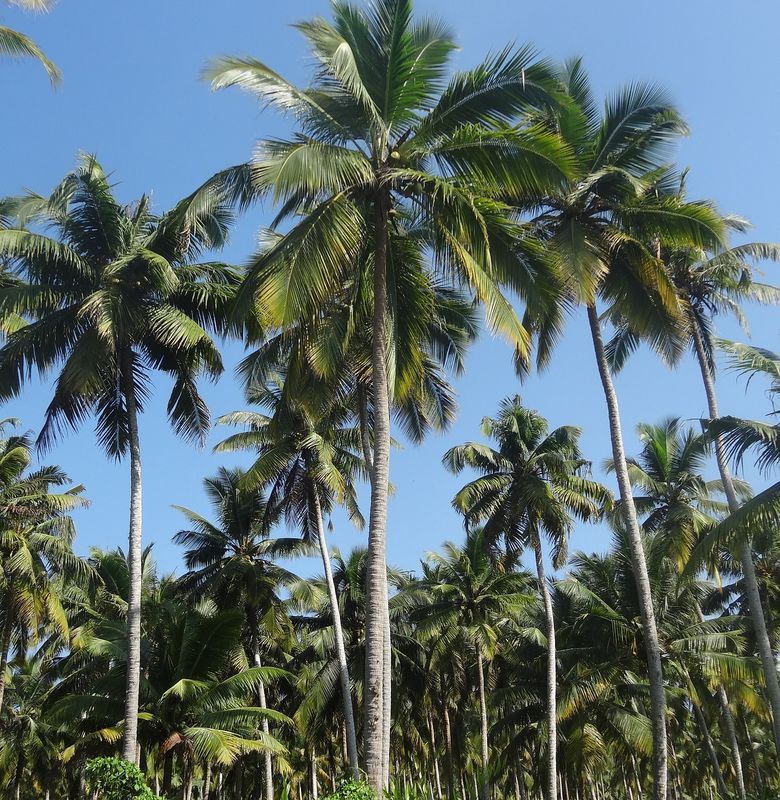
Cocos Nucifera Tree
Product Specification
Product Name : Granulated Coconut Sugar
Ingredient : Organic Coconut Nectar Sap.
Botanical Name : Cocos Nucifera
Appearance : Granulated Texture
Odor: Coconut Characteristic
Color : Reddish Brown
Granulation: Mesh #16,18
Solubility : 98-99% dry
Moisture Content : <3%
Shelf Life : 3 years
Origin: Java, Indonesia
HS Code : 1702.90.99.00
Port : Tanjung Emas (Semarang) or Tanjung Priok (Jakarta)
Capacity Container 20″ : 17.5 metric tons
Capacity Container 40″ : 22-25 metric tons (depends on each country regulation)
Packaging
Bulk Packaging
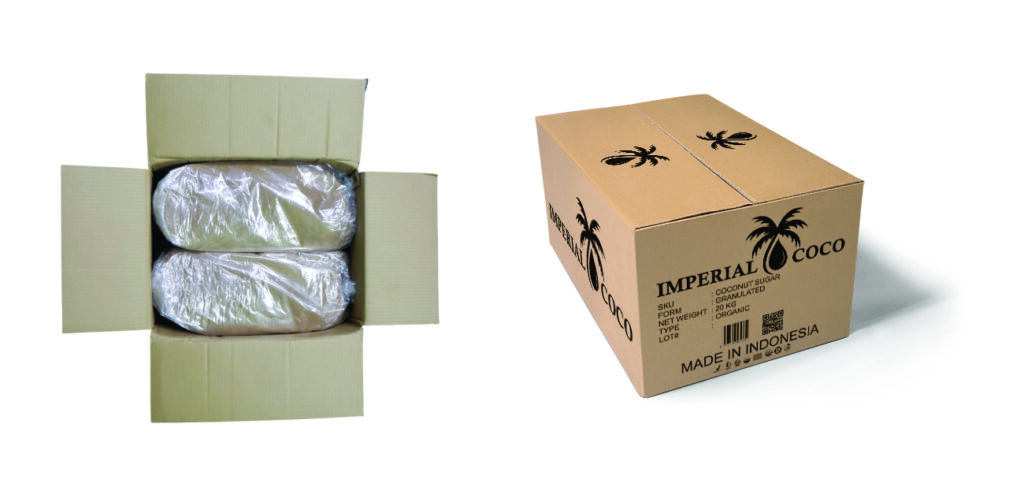
20Kg : 2 x 10Kg 50micron HDPE Plastic in a carton box
Box Dimension : 47x36x23 cm
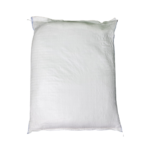
25Kg : PP woven bag with inner plastic
Our Retail Packaging

1Kg no brand and 200gr with brand
OEM / Private Label
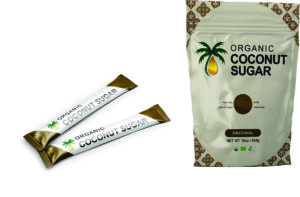
- Sachet 8gr
- Standing Pouch 250gr, 500gr, 1000gr, 1lb, 2lbs (with / without zipper)
- Custom Request
COCONUT BLOCK SUGAR
Coconut block sugar is also made from coconut nectar, it is boiled to lower the moisture up to 4-7% (7% max). Coconut block sugar is the traditional form of coconut sugar which is more common in Indonesia than granulated coconut sugar. We can find coconut block sugar in some south-east Asian countries and Netherland.
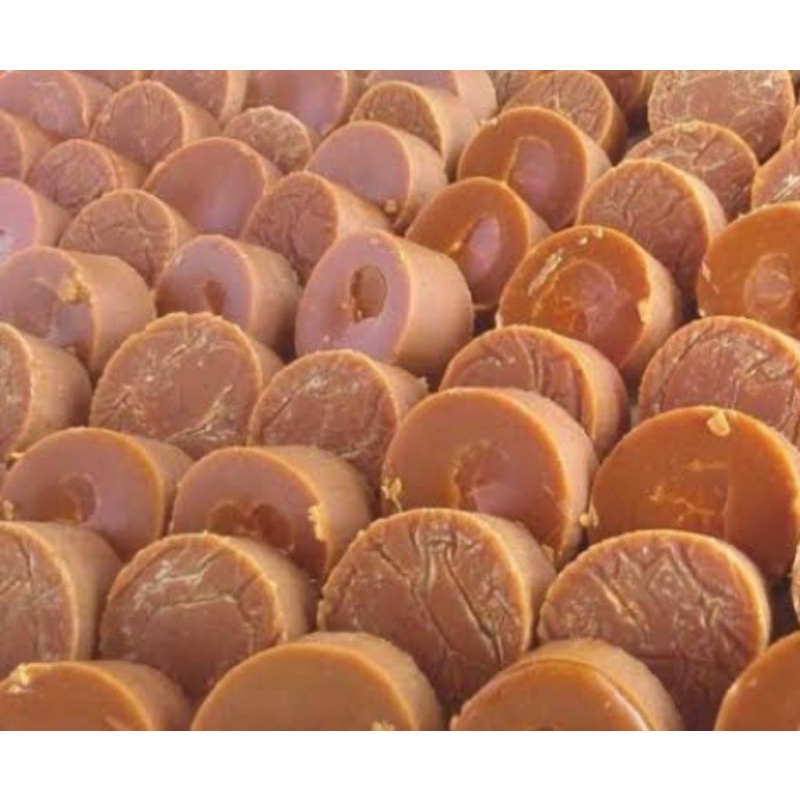
Product Specification
Product Name : Coconut Block Sugar
Ingredient : Organic Coconut Nectar Sap.
Botanical Name : Cocos Nucifera
Appearance : Block Coins Or Tubes From Molding
Odor: Coconut Characteristic
Color : Yellowish Or Reddish Brown
Solubility : 98-99% dry
Moisture Content : <7%
Shelf Life : 18 months
Origin: Java, Indonesia
HS Code : 1702.90.99.00
Port : Tanjung Emas (Semarang) or Tanjung Priok (Jakarta)
Capacity Container 20″ : 18 metric tons
Capacity Container 40″ : 22-25 metric tons (depends on each country regulation)
Packaging
Bulk Packaging
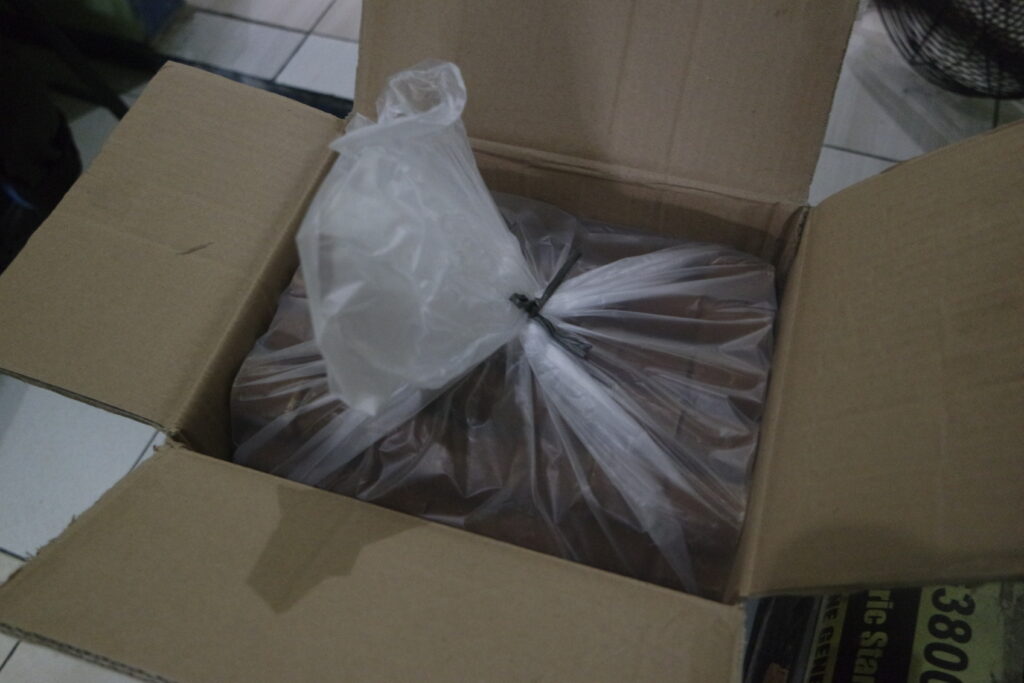
10Kg : 50micron PP Plastic in a carton box
OEM / Private Label
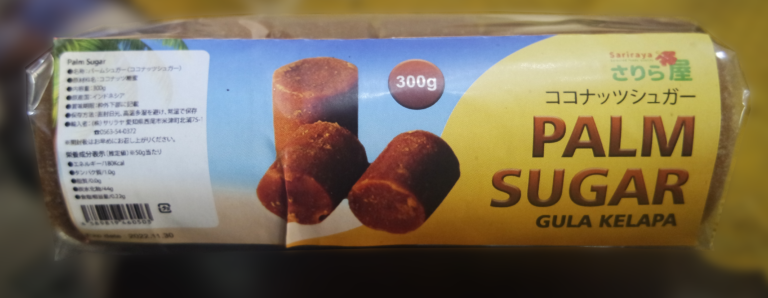
- 250gr, 300gr, 500gr, etc
- Custom Request
Arenga Palm Sugar
Palm sugar is made from a tree called Arenga pinnata, which is native to the coastal and tropical regions of Asia, particularly Indonesia, Malaysia, and China. Both coconut sugar and palm sugar have the same processes and they have similar taste and nutrition. Coconut sugar has butterscotch caramel taste, and palm sugar although has the same note, it often has a smokier taste. Bear in mind that palm sugar found in the US is commonly mixed with cane sugar, because pure palm sugar is very difficult to find if not from the native countries where the trees naturally grow.
The process of making palm sugar is similar to coconut sugar, from the collection of neera (nira in Bahasa) two times a day by our skilled farmers, then continued by cooking the neera in a huge wok for several hours until most of the water has evaporated. Same as coconut sugar, it is then granulated and sifted by hand, packed into sacks and sent to our processing facility to meet our specification. In our factory, our team check the raw material a.k.a raw palm sugar received from the farmers. If it passes our first check point, the raw palm sugar is spread out in multiple trays to baked in a large special oven to lose its moisture content. This is another check point, if we are happy with the moisture content, the process then continues to granulating and sifting by machine to achieve a certain particle size. After quality check again, finally, we weigh and pack the sugar in our double packaging to ensure safety and hygiene.

Arenga Pinnata Tree
Product Specification
Product Name : Granulated Arenga Palm Sugar
Ingredient : Organic Arenga Palm Nectar Sap.
Botanical Name : Arenga Pinnata
Appearance : Granulated Texture
Odor: Sweet Smokey Characteristic
Color : Reddish Brown
Granulation: Mesh #16,18
Solubility : 98-99% dry
Moisture Content : <3%
Shelf Life : 3 years
Origin: Java, Indonesia
HS Code : 1702.90.99.00
Port : Tanjung Emas (Semarang) or Tanjung Priok (Jakarta)
Capacity Container 20″ : 17.5 metric tons
Capacity Container 40″ : 22-25 metric tons (depends on each country regulation)
Packaging
Bulk Packaging

20Kg : 2 x 10Kg 50micron HDPE Plastic in a carton box
Box Dimension : 47x36x23 cm

25Kg : PP woven bag with inner plastic
Our Retail Packaging

1Kg no brand and 200gr with brand
OEM / Private Label
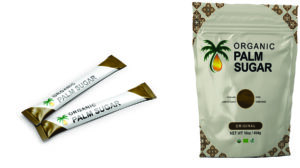
- Sachet 8gr
- Standing Pouch 250gr, 500gr, 1000gr, 1lb, 2lbs (with / without zipper)
- Custom Request
Coco Fiber
Coco fiber is produced from coconut husk.
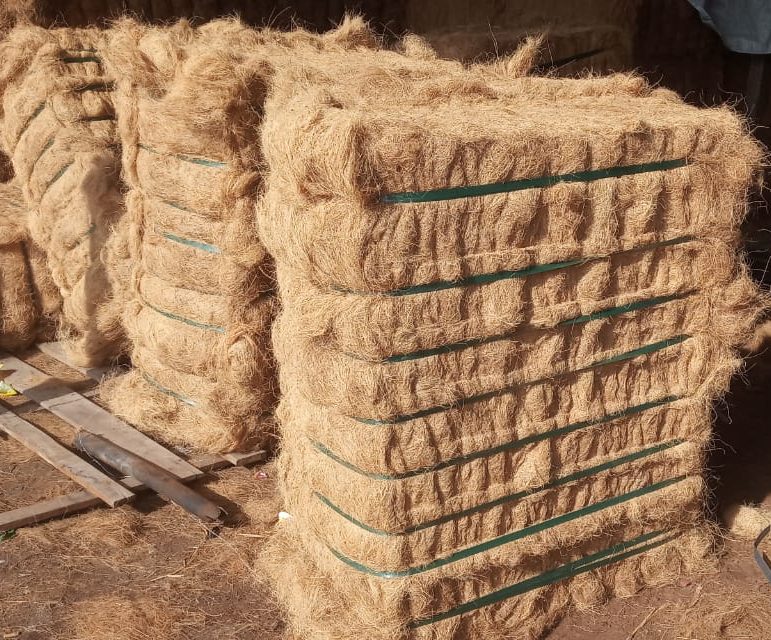
Product Specification
Product Name : Coconut Fiber
Moisture Maximum: 17 – 19 %
Impurity Content : 3 – 5 %
Length of Coconut Fiber : 10 – 25 cm
Color: Natural Brown / Golden Yellow Brown
Weight/Bale : 85 – 95 kg
Container 40 feet HC: 180 – 190 bale
Size : 100 x 80 x 50 cm
Detailed Pack : Pack With Strapping Band Width 16mm Black / Yellow
Origin: Java, Indonesia
HS Code : 53050090
Port : Tanjung Priok (Jakarta)
Capacity Container 40″ HC : 17.5 Metric Ton
Coco Peat
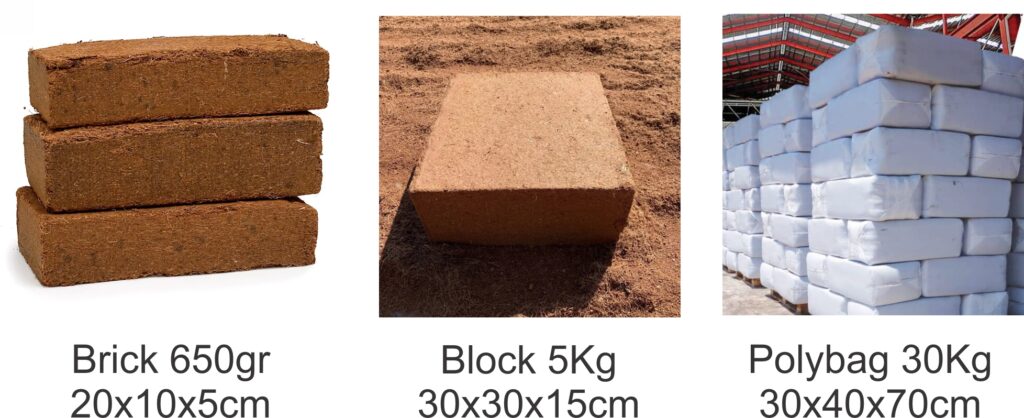
Product Specification
Product Name: Coconut Peat / Coco Coir
Size: 20 x 10 x 5 cm (Brick), 30 x 30 x 15 cm (Block), 30 x 40 x 70 (Polybag)
Weight: 650gr (Brick), 5Kg (Block), 30Kg (Polybag)
Compression Ratio: (5:1 (Brick & Block), 2:1 (Polybag)
Electrical Conductivity: <0.5ms/cm (Low EC), 4-5ms/cm (High EC)
Weight/Bale: 85 – 95 kg
Ph: 5.2 – 6.8
Expansion: 8-9liters (Brick), 70-80liters (Block), 200liter (Polybag)
Moisture: 15-20% (Brick & Block), 30-40% (Polybag)
Origin: Java, Indonesia
HS Code: 14049090
Port: Tanjung Priok (Jakarta)
Capacity Container 40″ HC: 24 Metric Ton
Price EXW: 0.12-0.38 USD

Jl Sadarmanah 143, Leuwigajah,
Kota Cimahi, West Java,
Indonesia – 40532
Phone / Whatsapp : +62 857 7000 7552
WeChat (中文) : +62 858 1033 3343
Email : info@imperialcoco.com
